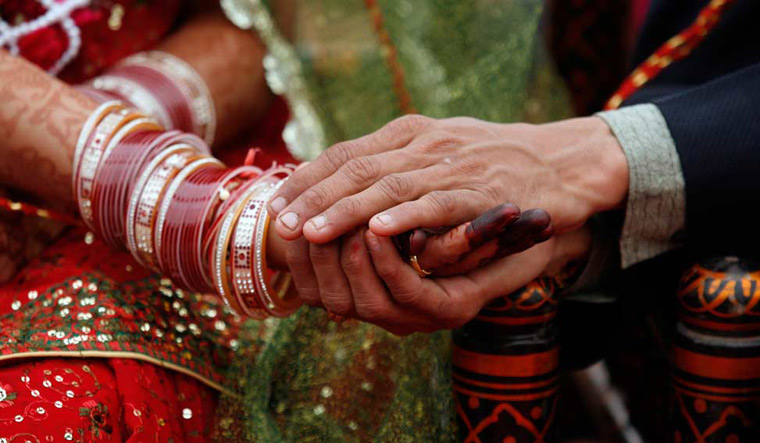Denial of conjugal relationship is a ground for divorce and does not tantamount to cruelty, but it cannot be "exceptional hardship" to end marriage before the mandated one-year cooling-off period, the Delhi High Court held on Monday as it refused to set aside the trial court order dismissing the mutual divorce petition filed by a couple.
A division bench of Acting Chief Justice Vipin Sanghi and Justice Jasmeet Singh, however, allowed the parties to move the appropriate court independently, after the expiry of one year of separation.
Earlier, a family court had dismissed the couple's divorce petition as it was filed before the one year time. Section 14 of the Hindu Marriage Act prescribes a mandatory one year waiting period from the date of marriage, before filing for divorce. This one year period can be waived off if the case is one of "exceptional hardship" to the petitioner or of "exceptional depravity" on the part of the respondent.
The high court, however, said: "Once the Parliament, in its wisdom, has legislated that denial of cohabitation/ conjugal relationship over a period of one year, or more, would tantamount to cruelty, it cannot be said that denial of sex simpliciter within the period of one year, would be a case of exceptional hardship. Thus we reject the submission of the appellant that the denial of conjugal relations by both parties is such, that it causes 'exceptional hardship or exceptional depravity' to either or both of them."
The couple got married on April 4, 2021 as per the Hindu rites at Ram Nagar in Uttarakhand. However, they started living separately on April 14, 202 after marital differences cropped up. On July 29, 2021, the woman left her matrimonial home and went to her parental house.
The family court dismissed their mutual divorce petition on October 16, 2021, following which the couple approached the Delhi High Court.
"The intent behind the framing of Section 13, 13B and Section 14 of the Hindu Marriage Act was to protect both- the individuals, as also the marriage. What the legislature has sought to address by way of divorce on the ground of cruelty, cannot be categorised as exceptional hardship or depravity so as to by-pass the well-established procedure,” the high court said as it upheld the trial court's ruling.












